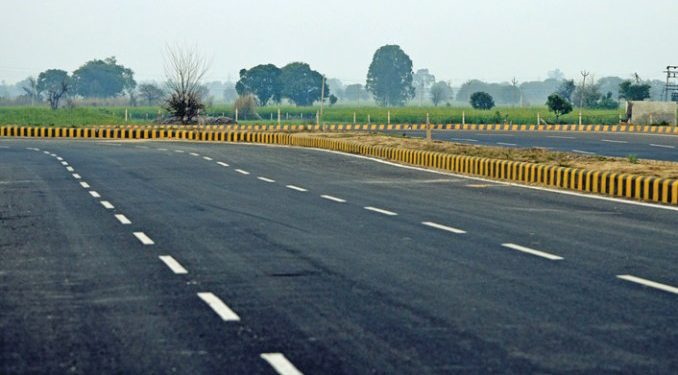New Delhi: Flagging “poor quality” of many roads built under the Pradhan Mantri Gram Sadak Yojana, a parliamentary panel has said that such compromise was “completely unacceptable” and suggested that the thickness of roads under the scheme be increased from existing 20 mm to 30 mm.
In its report tabled in Lok Sabha Thursday, the Department Related Standing Committee on Rural Development and Panchayati Raj also stressed on the need for better centre-state cooperation to properly implement the scheme.
The panel, which is headed by DMK MP Kanimozhi, stated that it is “constrained to note that the quality of road construction under PMGSY (Pradhan Mantri Gram Sadak Yojana) is an important issue affecting the entire country”.
“This glaring issue which casts aspersions on the marquee scheme of the central government has wider ramification on the hopes of rural populace of the country,” the committee said.
It also said the compromise in the quality of construction of roads was completely unacceptable and should be considered a punishable act.
“Instances are galore wherein the attention of the committee has been drawn towards the poor road materials used in the construction of roads at many places which are not able to sustain the rigours of weather and traffic volume even for one season and are washed away with the onset of monsoon,” it stated.
“The members of the committee having ground reality experience of their constituencies have time and again raised the nagging issue of poor quality of roads at many locations,” the panel said.
It urged the Department of Rural Development to entail stronger measures to ensure that the quality of roads constructed under PMGSY do not get compromised on account of utilisation of poor raw materials or other associated reasons.
The panel also pointed out that PMGSY roads are built under such guidelines which do not take into account plying of heavy tonnage vehicles which nowadays cause immense damage to rural roads.
“Heavy vehicles cause irreversible damage to the rural roads under PMGSY which are of the mandated thickness of 20 mm.”
The panel members suggested that the thickness of roads under PMGSY should be increased from existing 20 mm to 30 mm.
Referring to the process of maintainance of the roads after construction, the committee said the usual design life of such roads is 10 years and as per the programme guidelines, onus of the maintenance of roads within defect liability period (initial five years) falls on the contractor, while post-DLP (next five years) is the responsibility of the state government concerned.
However, the report stated, contractors often do not pay heed to the enabling provisions and there are abundant instances, wherein non-adherence to the maintenance provision has resulted in shabby and damaged condition of PMGSY roads.
Stating that the situation demands an “iron-fisted approach”, the committee said the Department of Rural Development should ensure that the provisions of standard bidding documents on post-construction maintenance of roads are complied with in “letter and spirit” and erring contractors should be short-listed and strict action should be taken to black-list them.
On the implementation of the scheme in the Left Wing Extremism-affected areas being slow, the panel said it is concerned to note that only about 55.61 per cent of the work had been completed in these areas by the end of January this year.
They also noted with concern the non-presence of earthen or soil flanks on either side of PMGSY roads at many locations which cause major inconvenience to pedestrians and bicycle or two-wheeler riders.
The panel also said centre-state coordination acts as the fulcrum for the performance of this scheme and also expressed concern over an unspent balance of Rs 2,269.631 crore under the scheme as January 20, 2023.
The committee recommended the department to increase the tempo of its ongoing efforts to ensure that the amounts under the head “unspent balances” get wiped out at a faster rate and projects are completed in a time-bound manner.
PMGSY was launched December 25, 2000 with an aim of providing rural connectivity to unconnected habitations of 500-plus population in plain areas and 250-plus population in northeastern and Himalayan states.
Over time, the scheme evolved and introduced new verticals such as PMGSY-II, Road Connectivity Project of Left Wing Extremism affected Areas (RCPLWEA), and PMGSY-III to further bolster the road network through construction and upgradation of roads.
A total of Rs 2,94,088 crore has been spent on all the components of PMGSY by the end of January this year.
PTI






































